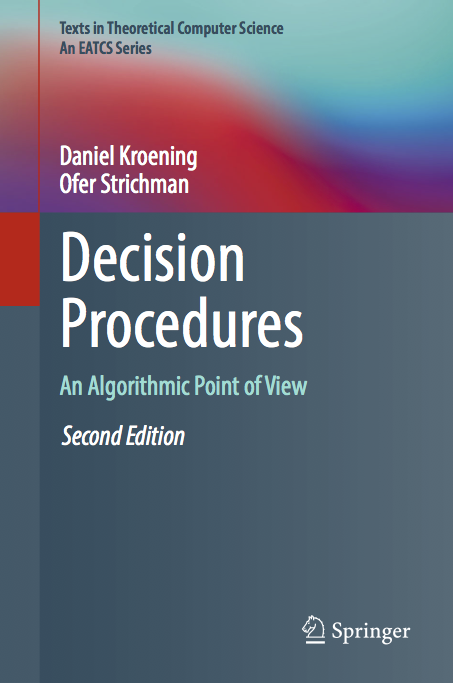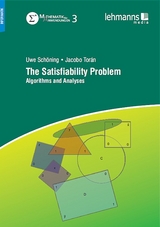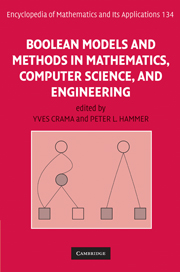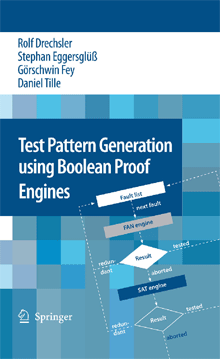CFP 9th Workshop on Answer Set Programming and Other Computing Paradigms
===============================================================================
LAST CALL FOR PAPERS
ASPOCP 2016
9th Workshop on Answer Set Programming and Other Computing Paradigms
https://sites.google.com/site/aspocp2016
October 16, 2016
Affiliated with the 32nd International Conference on Logic Programming
New York City, USA
October 17 - 21, 2016
===============================================================================
AIMS AND SCOPE
Since its introduction in the late 1980s, Answer Set Programming (ASP) has been widely applied to various knowledge-intensive tasks and combinatorial search problems. ASP was found to be closely related to SAT, which led to a new method of computing answer sets using SAT solvers and techniques adapted from SAT. This has been a much studied relationship, and is currently extended towards satisfiability modulo theories (SMT). The relationship of ASP to other computing paradigms, such as constraint satisfaction, quantified Boolean formulas (QBF), Constraint Logic Programming (CLP), first-order logic (FOL), and FO(ID) is also the subject of active research. Consequently, new methods of computing answer sets are being developed based on relationships to these formalisms.
Furthermore, the practical applications of ASP also foster work on multi-paradigm problem-solving, and in particular language and solver integration. The most prominent examples in this area currently are the integration of ASP with description logics (in the realm of the Semantic Web) and constraint satisfaction (which recently led to the Constraint Answer Set Programming (CASP) research direction).
A large body of general results regarding ASP is available and several efficient ASP solvers have been implemented. However, there are still significant challenges in applying ASP to real life applications, and more interest in relating ASP to other computing paradigms is emerging. This workshop will provide opportunities for researchers to identify these challenges and to exchange ideas for overcoming them.
TOPICS
Topics of interests include (but are not limited to):
- ASP and classical logic formalisms (SAT/FOL/QBF/SMT/DL).
- ASP and constraint programming.
- ASP and other logic programming paradigms, e.g., FO(ID).
- ASP and other nonmonotonic languages, e.g., action languages.
- ASP and external means of computation.
- ASP and probabilistic reasoning.
- ASP and knowledge compilation.
- ASP and machine learning.
- New methods of computing answer sets using algorithms or systems of
other paradigms. - Language extensions to ASP.
- ASP and multi-agent systems.
- ASP and multi-context systems.
- Modularity and ASP.
- ASP and argumentation.
- Multi-paradigm problem solving involving ASP.
- Evaluation and comparison of ASP to other paradigms.
- ASP and related paradigms in applications.
- Hybridizing ASP with procedural approaches.
- Enhanced grounding or beyond grounding.
SUBMISSIONS
Papers must describe original research and should not exceed 15 pages in the Springer LNCS format <URL:http://www.springeronline.com/lncs/>. Paper submission will be handled electronically by means of the Easychair system. The submission page is available at https://easychair.org/conferences/?conf=aspocp2016
IMPORTANT DATES
- Abstract and paper submission deadline: June 27, 2016
- Notification: July 30, 2016
- Camera-ready articles due: August 31, 2016
- Workshop: October 16 or 17, 2016 (TBA)
PROCEEDINGS
Accepted papers will be made available online.
LOCATION
The workshop will be held in New York, collocated with
the International Conference on Logic Programming (ICLP) 2016.
WORKSHOP CO-CHAIRS
- Bart Bogaerts, Aalto University, Finland
- Amelia Harrison, University of Texas at Austin, USA
PROGRAM COMMITTEE
- Rehan Abdul Aziz, University of Melbourne and National ICT Australia (NICTA)
- Marcello Balduccini, Drexel University
- Bart Bogaerts (chair), Department of Computer Science Aalto University
- Gerhard Brewka, Leipzig University
- Pedro Cabalar, University of Corunna
- Sandeep Chintabathina, Hawaii Pacific University
- Stefania Costantini, Dipartimento di Ingegneria e Scienze dell’Informazione e Matematica Univ. dell’Aquila
- Esra Erdem, Sabanci University
- Wolfgang Faber, University of Huddersfield
- Cristina Feier, University of Bremen
- Johannes Klaus Fichte, Institute of Information Systems Vienna University of Technology
- Enrico Giunchiglia, DIST - Univ. Genova
- Amelia Harrison (chair), University of Texas
- Daniela Inclezan, Miami University
- Tomi Janhunen, Aalto University
- Joohyung Lee, Arizona State University
- Nicola Leone, Department of Mathematics and Computer Science - University of Calabria
- Vladimir Lifschitz, University of Texas
- Marco Maratea, DIBRIS University of Genova
- Alessandro Mosca, SIRIS Lab - Research division of SIRIS Academic SL
- Max Ostrowski, University of Potsdam
- Guillermo Simari, Dept. of Computer Science and Engineering Universidad Nacional del Sur in Bahia Blanca
- Mirek Truszczynski, Computer Science Department University of Kentucky
- Richard Watson, Texas Tech University Department of Computer Science
- Stefan Woltran, TU Wien
- Fangkai Yang, Schlumberger Limited
- Jia-Huai You, Department of Computing Science University of Alberta










